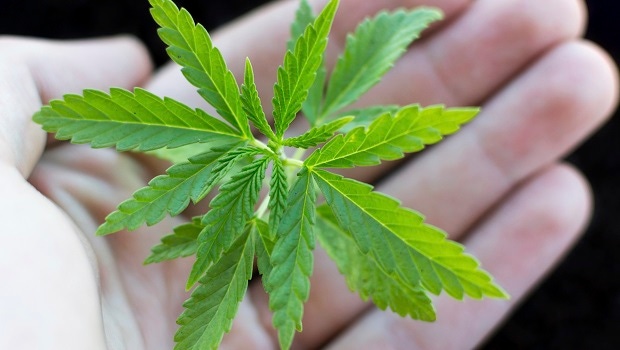Where are cannabis and hemp going? The cannabis experiment is leading to vibrant debate and rapid change, setting the stage for what is to come. Although many unanswered questions remain, we are starting to see the future of a natural, safe and effective health product that adheres to strict yet sensible standards.

Ten percent of Americans use it at least “occasionally," and its clinical data is stronger than that for many drugs. The safety and history of cannabis consumption is unparalleled as a natural product. Combined with the internet of cannabis anecdotal evidence, it’s hard to think of something that is so well researched, but so poorly understood.
A Medline search for “cannabis" lists 14,000 studies, including 814 clinical trials—136 published since 2013. Although many of these studies simply mention cannabis, larger trials currently are investigating the possible health benefits of cannabis.
In looking at a 2015 JAMA meta-analysis of 37 high-quality clinical trials on cannabis totaling 2,563 subjects, the eight trials that measured its effects on pain found it “very effective." Evidence of cannabis’ benefits for nausea and vomiting was also found in three trials, mirroring its age-old use in folk medicines. The analysis also found cannabis was effective for spasticity in multiple sclerosis (MS), improving appetite in HIV/AIDS and wasting diseases, and ocular pressure in glaucoma.
Regardless, most cannabis patients don’t need a meta-analysis to know about the relief the medicine gives them. Like it or not, for so many people, cannabis improves physical, mental and emotional well-being during difficult or terminal health issues. And its use by normal, healthy people is overall a low public health risk compared to alternatives like alcohol. Thus, many believe access to cannabis products—that meet high standards—for both medical and recreational use should not be out of reach.
However, the value of cannabinoids in the clinic, as well as general use to simply support overall health and wellbeing, is often limited by its side effect profile. Adverse events noted in a small percentage of subjects consuming high-THC cannabis included dizziness, dry mouth, fatigue, euphoria, disorientation, drowsiness, confusion, loss of balance and hallucination. The use of high-THC products can be habit-forming, and it remains “unclear" whether the products are beneficial or harmful for people with schizophrenia.
Obviously, the stigma and well-known psychoactive effects of THC are no help for its cause. But many feel that a key reason widespread medical adoption of cannabis is stalled is that patients have simply been unable to accurately measure or control how much they consume. Mix in the development of ultra-potent strains over years of a black market, and the lack of requirements to analyze and control dosage forms under that system, and it’s no wonder that legitimate use of cannabis is questioned by many critics.
Recent work has attempted to control THC doses better than before, while studying the effects of various doses and combinations of cannabinoids. Today, many believe that controlled dosage forms of cannabinoids, including cannabidiol (CBD), are required for any real progress to maximize cannabis’ health benefits.
CBD is naturally found in higher concentrations in industrial hemp than in today’s marijuana. In fact, the use and acceptance of hemp medicinally for thousands of years could be as much due to the psychoactive effects of THC, as to the anti-inflammatory and balancing effects of CBD.
Medline lists 92 clinical studies with cannabidiol, in some cases on its own and in others combined with THC. The role of CBD in the new millenium is just starting to evolve, however its presence in “approved" medicines began in ancient times and ended in the early 1900s. During that time, cannabis health products were made from industrial hemp. Thus, we are fairly sure that cannabidiol is one very old dietary ingredient with a long period of consumption and safety, even if it lacks the type of marketing evidence required under the current regulatory constructs.
Under the category of “studies in healthy people," CBD possesses a level of clinical evidence on par with some very well-studied dietary ingredients. CBD was most recently found effective in improving smoking cessation efforts and reducing anxiety in non-diseased populations, in multiple controlled clinical trials. A large area of study now is the use of CBD to reduce THC-induced mental impairment and cravings for drugs as well as food. Now, in states allowing use of medical cannabis for pain, a drastic drop in overdoses from painkillers is now becoming apparent. Needless to say, a large base of human data support the notion CBD-THC combinations could help to serve as the anti-gateway to more than just a box of donuts.
The other step to getting the dosage right is to have the proper analytical tools to measure it. In states where it is approved for use, all cannabis products are required to list test results from an approved lab on all product labels (representing a step up on food and supplement requirements), but the reliability of these test results have been questioned. In another recently published JAMA communication, 75 products from California, Colorado and Washington State were tested for cannabinoid content. Not surprisingly, 60 percent of products contained less THC than listed on the label, based on strict tolerance limits of +/- 10 percent. In the products tested, non-THC content including CBD was generally low.
Where are cannabis and hemp going? The cannabis experiment is leading to vibrant debate and rapid change, setting the stage for what is to come. Although many unanswered questions remain, we are starting to see the future of a natural, safe and effective health product that adheres to strict yet sensible standards.
About the Author(s)
You May Also Like






.png?width=800&auto=webp&quality=80&disable=upscale)